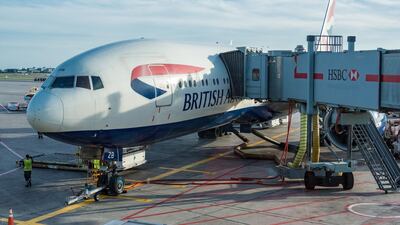British Airways' new "pay least, board last" policy, announced last week, has outraged many. In with #snobbery and #shamingthepoor. From December 12, BA passengers within Europe will be allocated to five groups based on their frequent flyer status or (and this is the incendiary part) the price of their ticket. Group one will board first while group five will wait patiently, giving priority not just to first and business class passengers, as is common, but to four other groups. That is as many levels as can be found in some traditional caste systems.
This move will be particularly unpalatable for people who appreciate low power distance. Power distance index (PDI) is a cultural value related to our preferences for hierarchy or egalitarianism and for playing up (or playing down) differences in power and status.
For example, if you have a low PDI boss, she will insist that you call her Penney or Pen. Conversely, if she is a high PDI boss, then the full honorific and moniker, Lady Penelope Hastings-Stanley, is mandatory. If she is a low PDI boss, then her office will be just a touch bigger than yours. If she is a high PDI boss, her workspace will be palatial and you will probably never see it.
Global research exploring cultural values typically suggests that the UK is a relatively low PDI society, preferring flatter structures and the understatement of status. Perhaps this is why BA's move to further impose a hierarchy and stratify its boarding process has touched a raw nerve.
Another problem with BA's move is that it fuels themification. Putting people in groups invites social categorisation, where people not in our group become viewed as “them”. Creating such groups is often the start of a slippery slope towards stereotyping, stigmatisation and discrimination. If I told you I’m a group five type of guy, you might start imagining all kinds of other spurious things about me. I can visualise a conversation in the not-too-distant future where someone refers to a person as a dirty lowlife “group fiver”. Is BA’s move stigmatising the relatively poor?
_________________
Read more from Opinion
Germany, the rock which steadied Europe, is now frustrating its reformers
Is anti-Muslim bigotry a form of racism?
With the opposition divided, Assad seeks to remain the dominant force
_________________
British Airways has responded to the criticisms over its “pay least, board last” policy by suggesting that the new arrangement is a way to simplify and streamline the boarding process. Like a guilty schoolchild, the airline also started pointing the finger at other airlines operating similar policies. However, if the new boarding system were all about efficiency, it would arguably be just as quick and easy to board passengers by seat number as it is to board them by ticket price.
It’s pretty standard for us to pay more for an enhanced service in many walks of life. Concerts, for example, often have mind-bogglingly stratified seating arrangements all bound up with the ticket price. I have seen events where there are tickets for VVIP through to VIP, platinum, gold, silver, bronze, superior, standard and so on. If you pay for the cheap seats at a rock concert, for example, you might need binoculars to see the stage. Most of us, however, just accept this as being the way of the world. So why the outrage when an airline makes the same move?
I think one difference might be related to the fact that across many cultures, travel is used as a metaphor for life. In English, you can see this expressed in well-worn phrases such as "life is a journey", "we are all travellers on life’s road" and "I’m at a crossroads in my life". In Arabic, too, the idea of life as a journey can be found in the Quranic concept of the straight path and the well-known saying, “be in the world as a traveller”.
Perhaps it’s because travel is so often used as a metaphor for life that the BA policy change is so irksome. This isn’t someone just making us wait a few extra minutes to board, this is someone unjustly interfering with our journey and life. That said, the reality of the situation is that everyone ends up taking their seat eventually and the plane isn’t going anywhere until the passengers are all boarded. Ultimately, we are either waiting aboard the aircraft or sitting waiting in the departure lounge. To use another life-as-journey metaphor, "the fast and the slow both meet at the ferryman”.


